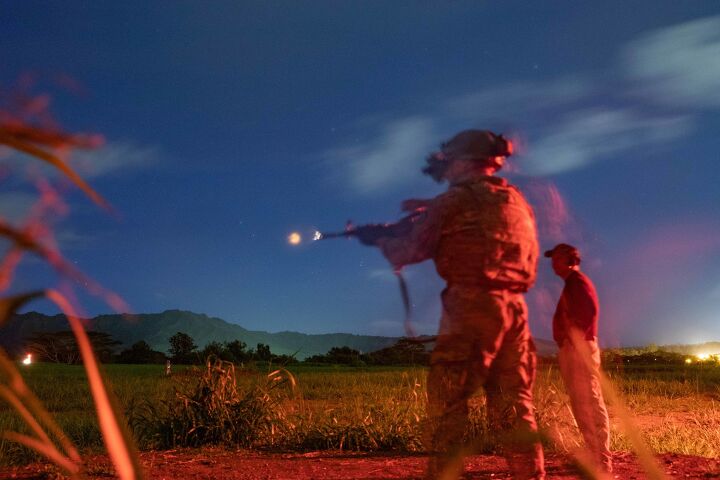The Department of Defense has announced that Massachusetts-based FLIR Systems and Florida-based Leonardo DRS have been awarded firm fixed price contracts worth over $500 million to provide Family of Weapons Sights-Individual thermal imaging systems. FLIR have been awarded a contract worth $500,219,123 while Leonardo DRS have been awarded a $579,295,440 contract. According to US Army, the production locations and funding allocations for the FWS-I contracts will be determined with each order, with an estimated completion date of 27 April, 2027.
The US Army defines the Family of Weapons Sights-Individual or FWS-I’s mission as: “To enable Soldiers to acquire and engage targets with small arms and conduct surveillance in daylight or no-light, at night, through obscurants, and under adverse weather conditions, while maintaining boresight of an in-line day optic.” The program began back in 2014 with initial operational testing completed in late 2018. Back in 2016, California-based N2 Imaging Systems were awarded the contract for FWS-Sniper. The Family of Weapon Sights also includes FWS-Crew Served for heavy machine guns and automatic grenade launchers.
The FWS-I will thermal imagery including a reticle boresighted to the host weapon, which will include M4A1s, M249 and the future XM5 and XM250 Next Generation Squad Weapons. In conjunction with a weapon’s day optic, the system can be used alongside the L3Harris Enhanced Night Vision Goggle – Binocular (ENVG-B) and the Integrated Visual Augmentation System (IVAS) which is currently being developed.

A Soldier from the 2-506, 101st Airborne Division don the Enhanced Night Vision Goggle (ENVG-B), Nett Warrior, and Family of Weapons Sight – Individual (FWS-I) during a live fire test event at a Soldier Touchpoint at Aberdeen Proving Ground, MD in February 2021. (US Army/Courtney Bacon)
Here are the Department of Defense award notices in full:
DRS Network & Imaging Systems LLC, Melbourne, Florida, was awarded a $579,295,440 firm-fixed-price contract for the Family of Weapons Sights-Individual. Bids were solicited via the internet with four received. Work locations and funding will be determined with each order, with an estimated completion date of April 27, 2027. U.S. Army Contracting Command, Aberdeen Proving Ground, Maryland, is the contracting activity (W91CRB-22-D-0008).
FLIR Systems Inc., North Billerica, Massachusetts, was awarded a $500,219,123 firm-fixed-price contract for the Family of Weapons Sights-Individual. Bids were solicited via the internet with four received. Work locations and funding will be determined with each order, with an estimated completion date of April 27, 2027. U.S. Army Contracting Command, Aberdeen Proving Ground, Maryland, is the contracting activity (W91CRB-22-D-0009).
According to US Army PEO Soldier, the FWS-I has 7 hours with one battery change operational time and is powered by 3 AA lithium batteries. The units reportedly weigh less than 2 lbs and have a range of almost 1000 meters.
The FWS-I optic is capable of feeding the view of the weapon sight into the ENVG-B goggle’s display. This allows troops to identify, aim at and engage targets without the need for a laser or even bringing the weapon to the shoulder. In March 2021, PEO Soldier assistant product manager for ENVG-B, Major Bryan Kelso, said “the FWS-I is mounted in front of the Soldier’s day optic on their M4, which allows you to passively engage targets in a multitude of ranges out to the max effective range of the weapon.”
During a February 2021 soldier touchpoint event Sergeant William Williams of 3BCT, 2-506, 101st Airborne, explained the effectiveness of the systems: “I could stay completely behind cover, my eyes and head not even looking in the direction of the target, and utilize my FWS-I pumped into the ENVG-B and effectively engage my targets that way.”
 Your Privacy Choices
Your Privacy Choices
